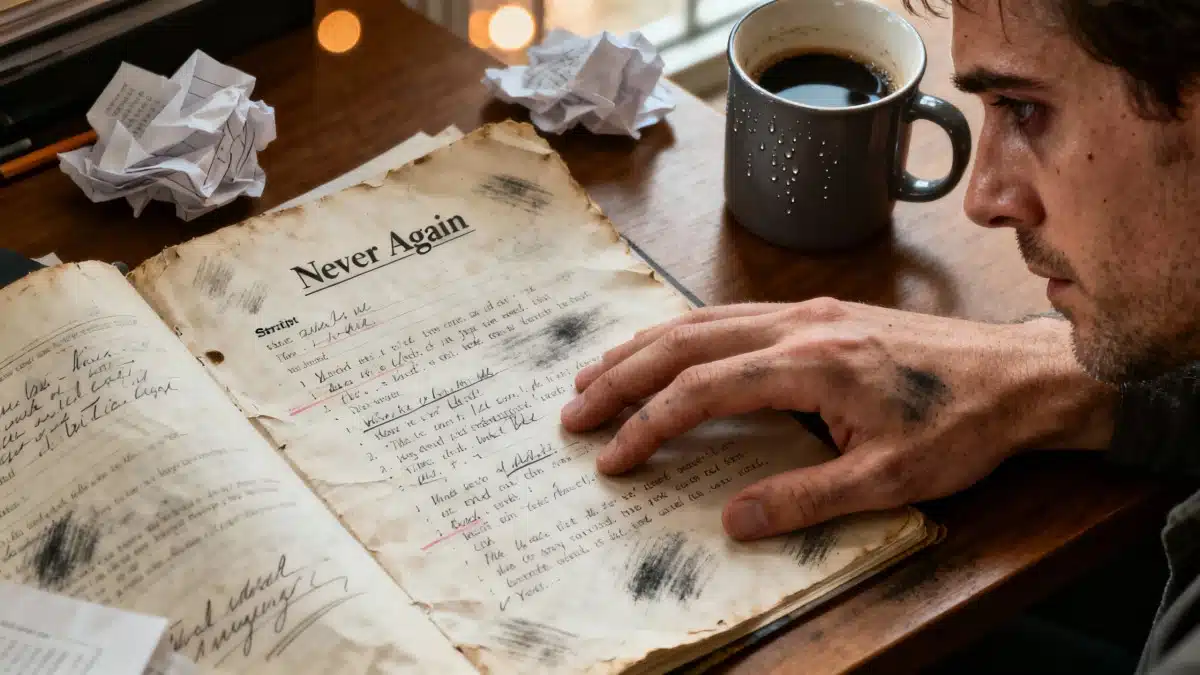If you thought surviving the Upside Down was tough, try surviving on nothing but crusty bread and dubious soup in a Russian gulag. Welcome to the jaw-dropping transformation of Jim Hopper in Stranger Things’ fourth season—and to the actor’s honest confession: never again!
From Hawkins Sheriff to Russian Prisoner: Hopper’s Transformation
A mere ten days ago, Volume 2 of Stranger Things Season 4 landed on Netflix, whisking main characters to every corner of the United States—and even beyond. The most talked-about journey? That of Sheriff Jim Hopper, the beloved Hawkins lawman. At the end of Season 3, most viewers believed Hopper had made the ultimate sacrifice (though those who stayed for the post-credit scene had their doubts). Season 4 squashes any speculation: Hopper isn’t dead, but locked away in a Russian gulag, navigating a brutal prison life among fellow inmates who don’t even speak his language.
Forget Hawkins’ homely comforts. Goodbye, peanut butter and Eggos. The Hopper of the gulag survives on scraps: hard bread, watery soup… if he’s lucky. When escape calls, even these meager meals disappear. All this on-screen hardship required a mirror image in real life from the actor bringing Hopper to life—David Harbour.
David Harbour’s Extreme Diet: Art Imitates (Very Difficult) Life
To match Hopper’s withered look, Harbour had to say a difficult farewell to calories. The method? Intermittent fasting and pilates. Intermittent fasting, for the uninitiated, is that special kind of willpower-fueled routine where you eat nothing for sixteen straight hours, then pray that your eight remaining hours of eating feel like a victory feast (spoiler: they rarely do).
- Lived only on limited (and unappetizing) foods
- Incorporated intermittent fasting—16 hours of fasting, 8 hours of eating
- Added pilates into his regime
Harbour’s honesty about the process is refreshing—no movie-star glam; just the plain truth. To quote Harbour, “I lost about 36 kilograms. I was about 120 kilos at the time, then when we started shooting season 4, I weighed around 85 kilograms. I don’t think I’ll do it again.”
The lost kilos may have fit the suffering prisoner’s narrative, but Harbour is candid: the regime left a real mark on him—not a pleasant one. If you thought the struggle to break out of a Soviet prison looked harrowing on screen, imagine living that deprivation in real life. Harbour’s verdict is firm: this was a one-time performance. Hopper’s emaciated days are behind him.
The Price of Dedication: When Acting Demands More Than Talent
During a deep-dive interview with GQ magazine, Harbour opened up not only about his approach to acting but also about the character’s budding romance with Joyce Byers (Winona Ryder). Still, it’s the scale of his physical transformation that truly steals the show. The lost weight may have added realism to his portrayal, but according to Harbour, it’s not something he’s eager to repeat. The pounds, in any case, have returned—and just in time for his next film: Violent Night. Coincidence, or a happy byproduct of Hopper’s repaired love life? Now that’s a question the Upside Down itself might struggle to solve.
Looking Back and Moving Forward
Fans, take note: bringing Hopper back from the brink wasn’t just television magic. It was living proof of a performer’s dedication—and the real toll such transformations can take. Next time you see Harbour chasing monsters or falling in love on screen, know that he’s decided to leave the wild diets behind.
If you’re considering acting as a career, just remember: the emotional roller coaster is part of the job, but if your next role demands 36 kilograms shed via prison rations and intermittent fasting, you might want to ask for a stunt double or, at the very least, a well-stocked craft table. For everyone else, enjoy your Eggos. You’ve earned them.

John is a curious mind who loves to write about diverse topics. Passionate about sharing his thoughts and perspectives, he enjoys sparking conversations and encouraging discovery. For him, every subject is an invitation to discuss and learn.






